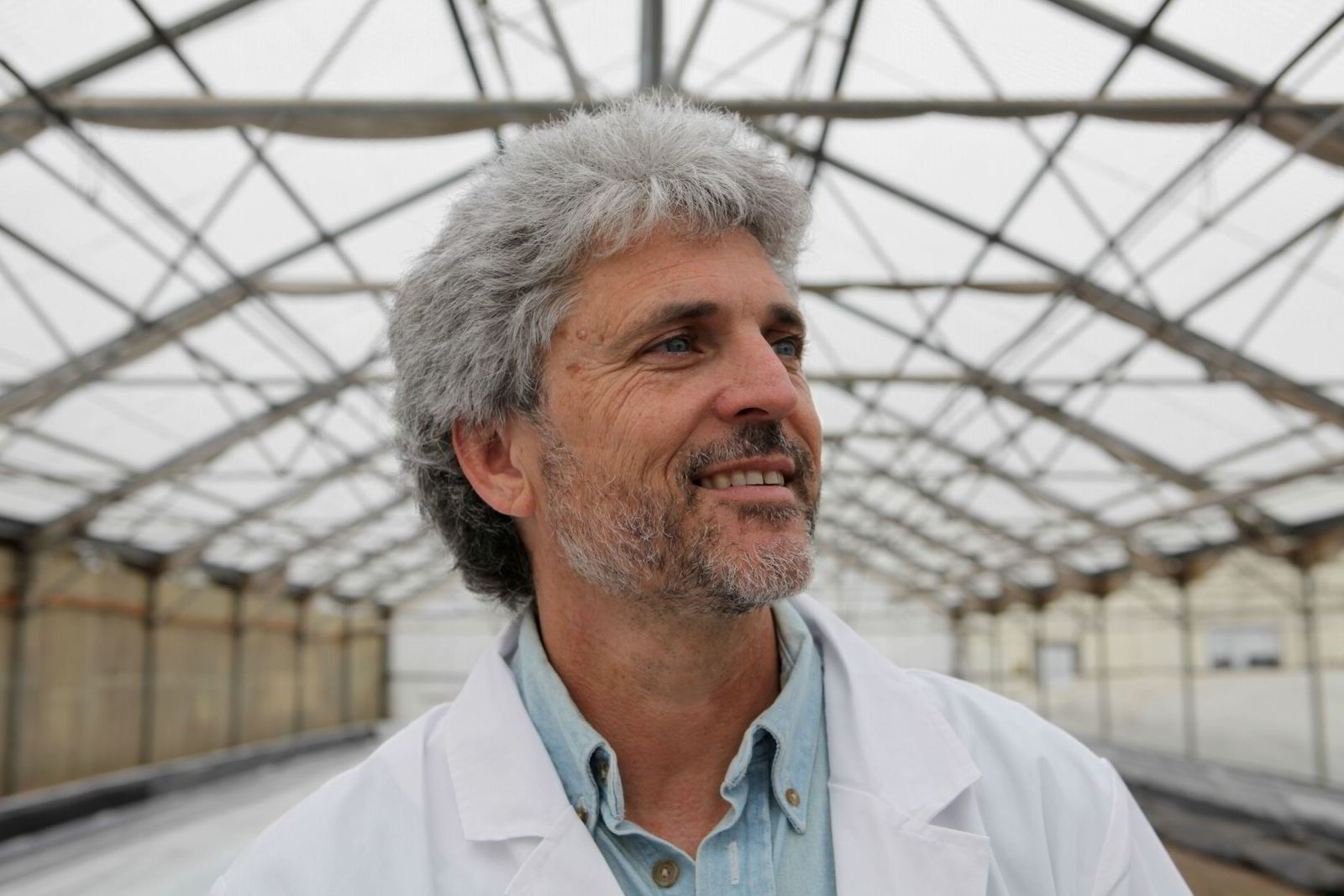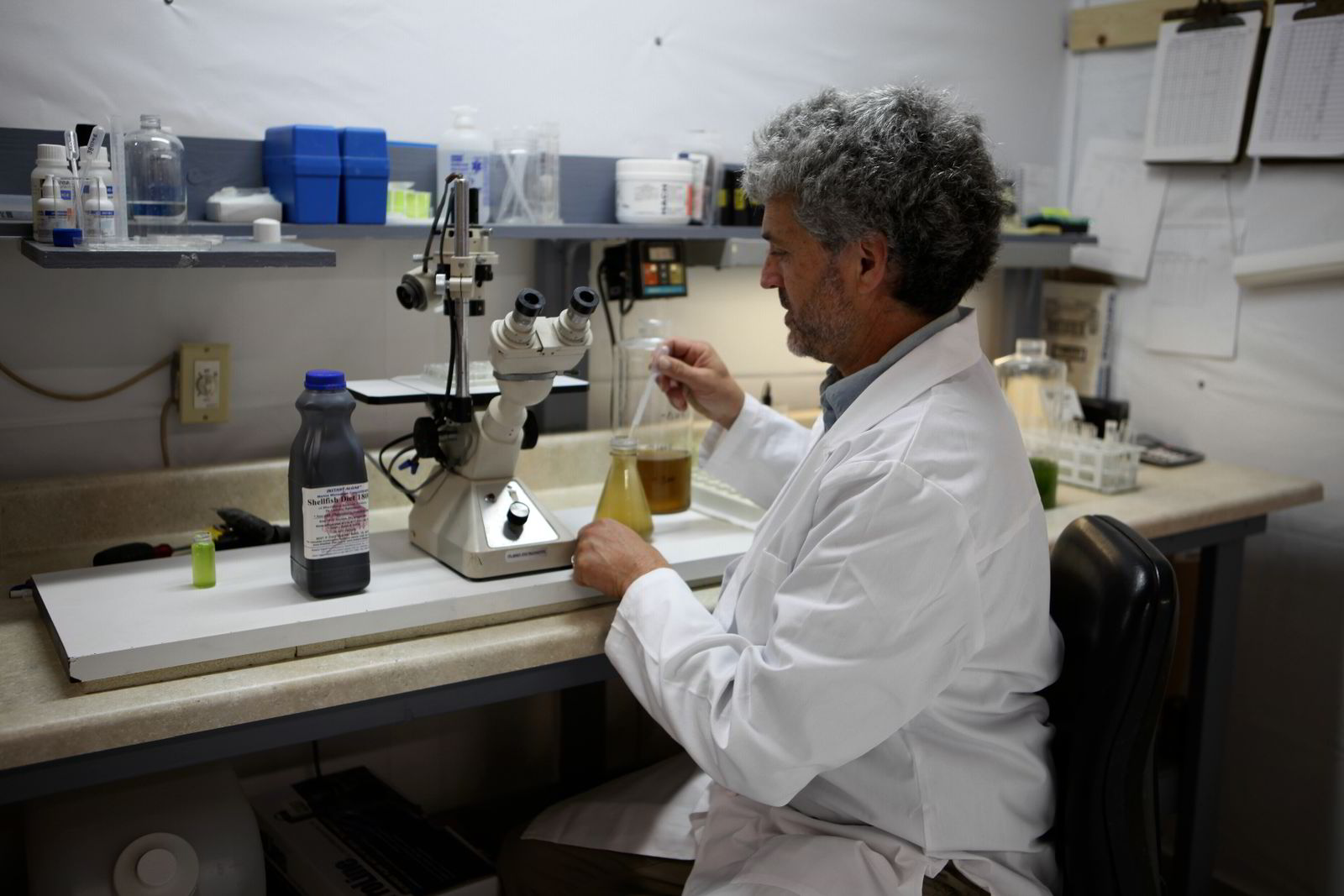Tim Reed is president and founder of Reed Mariculture, Inc. He talks to IntraFish about Reed's work and why zooplankton is so key to the aquaculture industry.
Why is a zooplankton live feed irreplaceable for many aquaculture applications?
Larvae of many finfish and crustaceans either have an absolute requirement for a zooplankton live feed, or they have dramatically better development when started on zooplankton. An adequate supply of nutritious zooplankton is therefore the difference between success and failure for larviculture of many aquacultured species.
What are the challenges of zooplankton as feeds?
Zooplankton are living animals, so they require careful husbandry. Obviously, reliable culture systems with good control of water quality and suppression of contaminating organisms are essential.
But the greatest challenge is providing the high-quality food required by these minute animals. Their food must not only contain the required nutrients, but also must be in the form of appropriate particle sizes, be readily accepted by the zooplankton, and must not stimulate proliferation of bacteria and other contaminating organisms.
Why does the production of high-quality zooplankton require a reliable supply of algae?
Although some zooplankton can be produced using cheaper feeds such as yeast or lipid emulsions, such feeds have several shortcomings.
The nutritional content is often not adequate to produce zooplankton with the nutritional profile required by the larvae, or the content is so unbalanced (e.g., extreme lipid content) that the zooplankton become physiologically stressed.
The particle size distributions of these feeds may not be a good match for the needs of the zooplankton, so much of the feed cannot be assimilated and only serves to foul the culture and encourage proliferation of bacteria and protozoa.
Dry feeds can leach much of their nutritional content before the zooplankton can consume the particles, and lipid emulsions foul the culture tank and the zooplankton organisms themselves, so they require laborious and stressful washing procedures before they can be fed to larvae.
In contrast, macroalgae (phytoplankton) are the natural food of zooplankton, and can provide optimal nutritional content in the appropriate particle sizes. Zooplankton feed efficiently on algae, so culture systems are not fouled and contaminating organisms do not proliferate.
How can zooplankton production be made easier and more reliable?
Hatcheries often find it difficult to reliably produce enough algae for their zooplankton cultures. Reed Mariculture’s Instant Algae® and RotiGrow® macroalgae concentrates are a much more convenient, and often more economical food for zooplankton.
The defined concentrations of these products make it possible to automate feeding of zooplankton using dosing pumps. Use of continuous culture protocols instead of batch cultures simplifies zooplankton production and results in more consistent production and considerable saving of labor.
What new zooplankton projects is Reed Mariculture working on?
Very soon we will offer a new Instant Zooplankton product, the copepod, Apocyclops panamensis. This species has small nauplii, thrives on our Instant Algae microalgae concentrates, and completely suppresses the ciliate protozoa that can contaminate and make useless cultures of some other copepods.
We are also collaborating with other researchers to develop a “Super-Super Small,” soft-bodied rotifer, Proales sp., for aquaculture of fish species with an exceptionally small larval mouth gape. And, as we always have, we continuously work with our customers to develop improved zooplankton feeds and more convenient and economical production protocols.
---
Every day this week we will be running a series of articles on zooplankton and its role in hatchery larval feed from specialists Reed Mariculture. You can find links to the other four articles here:
Zooplankton Week Part 1: Your guide to hatchery larval feed
Zooplankton Week Part 2: Debunking the myths about rotifers
Zooplankton Week Part 3: The ABCs of copepods
Zooplankton Week Part 4: Reed Mariculture -- The Plankton People™
---
Get in touch with Reed Mariculture by emailing techsupport@reedmariculture.com or visiting their site at www.reedmariculture.com.

